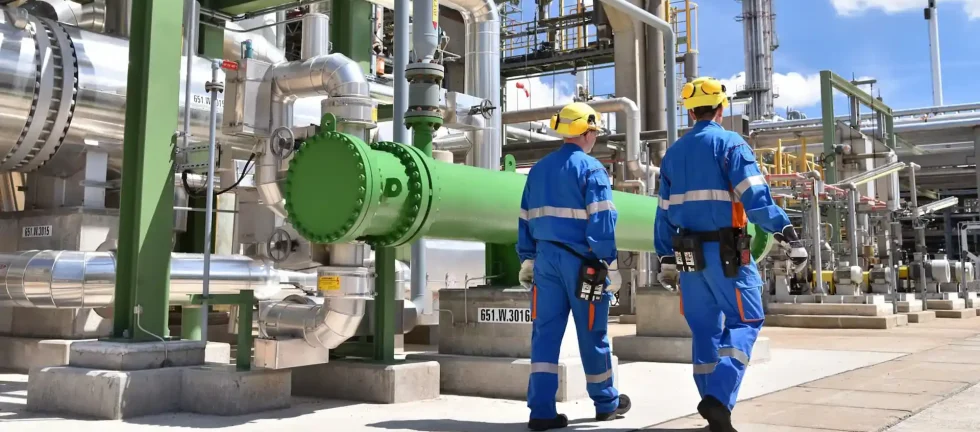The Final Frontier: Key HSE Considerations for a Safe and Successful Plant Commissioning
After months or even years of meticulous design, procurement, and construction, your facility stands complete. The final hurdle before commercial operation is commissioning—the systematic process of testing and starting up new equipment and systems. This is arguably the most critical and high-risk phase of any industrial project. It is the first time that equipment will be energized, pipes will be pressurized, and hazardous materials will be introduced.
Without a robust Health, Safety, and Environment (HSE) plan, the commissioning phase can be a minefield of potential incidents. A successful startup is not just about function; it’s about achieving operational readiness without a single injury or environmental event. For project owners and EPCs, focusing on HSE during commissioning is the ultimate form of risk management.
Why Commissioning is a High-Risk Phase
The commissioning environment is unique and dynamic. It combines the risks of a construction site with the hazards of an operational plant. Key risk factors include:
- Introduction of Energy: Electrical systems are energized, and equipment is started for the first time.
- Process Fluids and Chemicals: Hydrocarbons, steam, and chemicals are introduced into systems that have not yet been proven in operation.
- Simultaneous Operations (SIMOPS): Construction activities may still be finishing while commissioning teams are testing nearby systems, creating complex interfaces.
- High-Pressure Testing: Activities like pneumatic and hydrostatic testing introduce significant stored energy.
- Unproven Systems: Control loops, safety alarms, and emergency shutdown systems are being tested and may not function as expected initially.
Foundational Pillars of a Safe Commissioning Plan
A world-class HSE plan for commissioning is built on several non-negotiable pillars. Overlooking any one of these can have severe consequences.
1. Comprehensive Risk Assessments
Before any commissioning activity begins, a thorough risk assessment, such as a Job Safety Analysis (JSA) or Task Risk Assessment (TRA), must be conducted. This involves identifying potential hazards, evaluating the risks, and implementing robust control measures to mitigate them. For complex systems, a more detailed HAZOP (Hazard and Operability) study may be required.
2. A Rigorous Permit to Work (PTW) System
The PTW system is the single most important control process during commissioning. It is a formal, documented system that authorizes specific people to perform specific work at a specific time. It ensures that all risks have been assessed, controls are in place, and all affected parties (e.g., electrical, mechanical, operations) have been informed. No work should proceed without a valid, properly authorized permit.
3. Lockout-Tagout (LOTO) Procedures
When equipment needs to be serviced or inspected, it must be properly isolated from all energy sources. LOTO procedures ensure that machinery cannot be unexpectedly started up while personnel are working on it. This is a life-saving procedure that requires strict adherence and verification.
4. Emergency Response Planning
Despite all precautions, things can still go wrong. A detailed Emergency Response Plan (ERP) must be in place and clearly communicated to all personnel. This plan should cover scenarios like fire, chemical spills, and medical emergencies, and regular drills should be conducted to ensure everyone knows their role.
5. The Pre-Startup Safety Review (PSSR)
The PSSR is the final gateway before introducing hazardous materials into a system. It is a formal review and checklist conducted by a multidisciplinary team to confirm that all construction is complete, safety systems are functional, procedures are in place, and personnel are trained. A PSSR is the final verification that the facility is truly ready and safe for startup.
Partnering with Provenex for Commissioning Excellence
Successfully managing HSE during commissioning requires deep expertise and an unwavering commitment to safety. At Provenex Engineering, we provide comprehensive EPC and commissioning support, with HSE at the core of everything we do. Our services include facilitating risk assessments, developing HSE compliance reports, coordinating with third-party inspectors, and managing the creation of critical handover documentation, including the PSSR.
We act as your expert partner, ensuring that the transition from construction to operation is not only seamless but, most importantly, safe for everyone involved.
Don’t leave the most critical phase of your project to chance. Contact Provenex today to partner with experts in safe and successful plant commissioning and handover.



Comments (2)
Riva Collins
It’s no secret that the digital industry is booming. From exciting startups to need ghor
global and brands, companies are reaching out.
Oliva Jonson
It’s no secret that the digital industry is booming. From exciting startups to need ghor
global and brands, companies are reaching out.